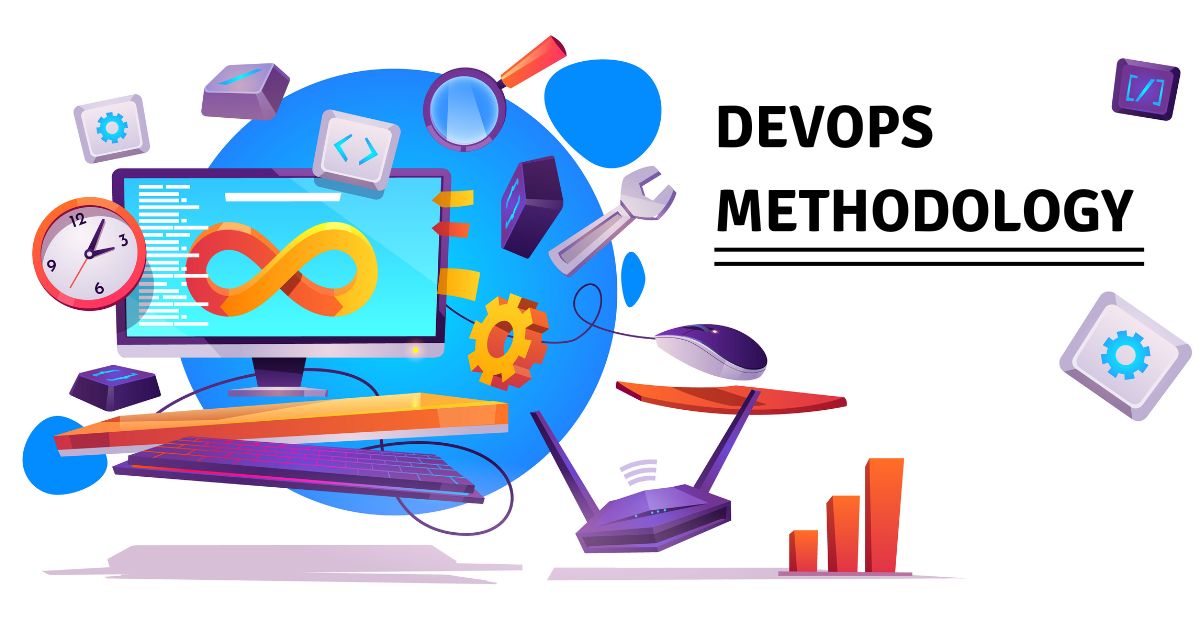Team Techsaga
Gain valuable insights and stay updated with the latest innovations through our engaging blog. Explore trends, technology advancements, and expert opinions to navigate the ever-evolving world of IT.
Why DevOps is Important for Businesses?
In today’s rapidly evolving business landscape. Technology driving innovation and customer expectations are constantly rising. Consequently, organizations need to embrace efficient and collaborative methodologies to stay competitive. DevOps methodology has emerged as a crucial approach for businesses aiming to enhance operational efficiency, accelerate product delivery, etc.
By breaking down silos between development and operations teams, devops methodology promotes collaboration, automation, and continuous delivery. This enables organizations to streamline processes, improve quality, and rapidly respond to market demands. Ultimately driving business growth and customer satisfaction in a dynamic and demanding market environment.
With the help of this article, we will explore the significance of DevOps methodology. Let us deep down and learn everything.
Overview of DevOps Methodology:
DevOps methodology is a collaborative approach that combines software development and IT operations to streamline processes, foster collaboration, and drive continuous improvement. It focuses on breaking down the traditional silos between development and operations teams, emphasizing cross-functional collaboration, communication, and automation. DevOps encourages a cultural shift, promoting shared responsibility and accountability throughout the software development lifecycle.
Significance of DevOps:
1. Streamlined Collaboration and Communication-
DevOps methodology promotes collaboration and communication between development and operations teams. By breaking down traditional silos and fostering a culture of shared responsibility, organizations can align their goals and work together seamlessly. Developers and operations personnel collaborate from the early stages of the software development process, ensuring that requirements, feedback, and insights are shared effectively. This collaboration leads to quicker issue resolution, faster decision-making, and ultimately, more efficient software development.
2. Accelerated Delivery and Time-to-Market-
One of the key advantages of DevOps methodology is its ability to accelerate product delivery and reduce time-to-market. By implementing automated processes and continuous integration and continuous delivery (CI/CD) pipelines, organizations can streamline the development, testing, and deployment of software applications. Automation eliminates manual and error-prone tasks, enabling teams to release new features and updates more frequently and reliably. This rapid and iterative approach allows businesses to respond to market demands faster and gain a competitive edge.
3. Improved Quality and Reliability-
DevOps methodology places a strong emphasis on ensuring the quality and reliability of software applications. Through automated testing, continuous monitoring, and feedback loops, organizations can proactively detect and address issues before they impact end users. Automated testing ensures that software applications meet the desired quality standards, while continuous monitoring helps identify performance bottlenecks, security vulnerabilities, or scalability challenges in real time. The result is a more stable and resilient software environment, reducing downtime and ensuring a positive user experience.
4. Enhanced Operational Efficiency-
DevOps methodology drives operational efficiency by eliminating manual and repetitive tasks through automation. By automating processes such as code building, testing, and deployment, teams can significantly reduce errors, save time, and improve overall productivity. Automation also enables efficient resource utilization, as infrastructure provisioning and configuration can be automated, reducing dependency on manual intervention. This streamlined approach allows organizations to focus on value-added activities, innovation, and strategic initiatives.
5. Increased Agility and Flexibility-
In today’s dynamic business environment, agility and flexibility are essential for organizations to adapt and thrive. DevOps methodology enables businesses to respond quickly to changing market needs and customer expectations. The iterative and continuous delivery approach of DevOps allows for frequent releases and updates, facilitating rapid experimentation and gathering of customer feedback. This iterative feedback loop enables organizations to make informed decisions and continuously improve their products and services.
6. Continuous Delivery and Deployment-
DevOps emphasizes automation for continuous delivery and deployment. This allows organizations to rapidly and reliably deliver software updates, new features, and bug fixes. By automating processes such as testing, building, and deployment, DevOps significantly reduces time-to-market. This agility enables organizations to respond quickly to customer needs and market demands. Ultimately increasing customer satisfaction by providing timely and high-quality software releases.
Conclusion:
DevOps methodology has become indispensable for businesses seeking to enhance operational efficiency, accelerate product delivery, and provide exceptional customer experiences. By fostering collaboration, automation, and continuous improvement, DevOps enables organizations to streamline processes, reduce time-to-market, improve software quality, etc. Embracing DevOps methodology is no longer a choice but a necessity for businesses aiming to stay competitive.
Techsaga is a leading Digital Agency offering a multitude of IT and Digital solutions. This devops methodology organization is serving you with the best ideas and solutions for all your digital needs.
Read also:
Why should automation be used in project management software?
TAG: Devops Methodology



